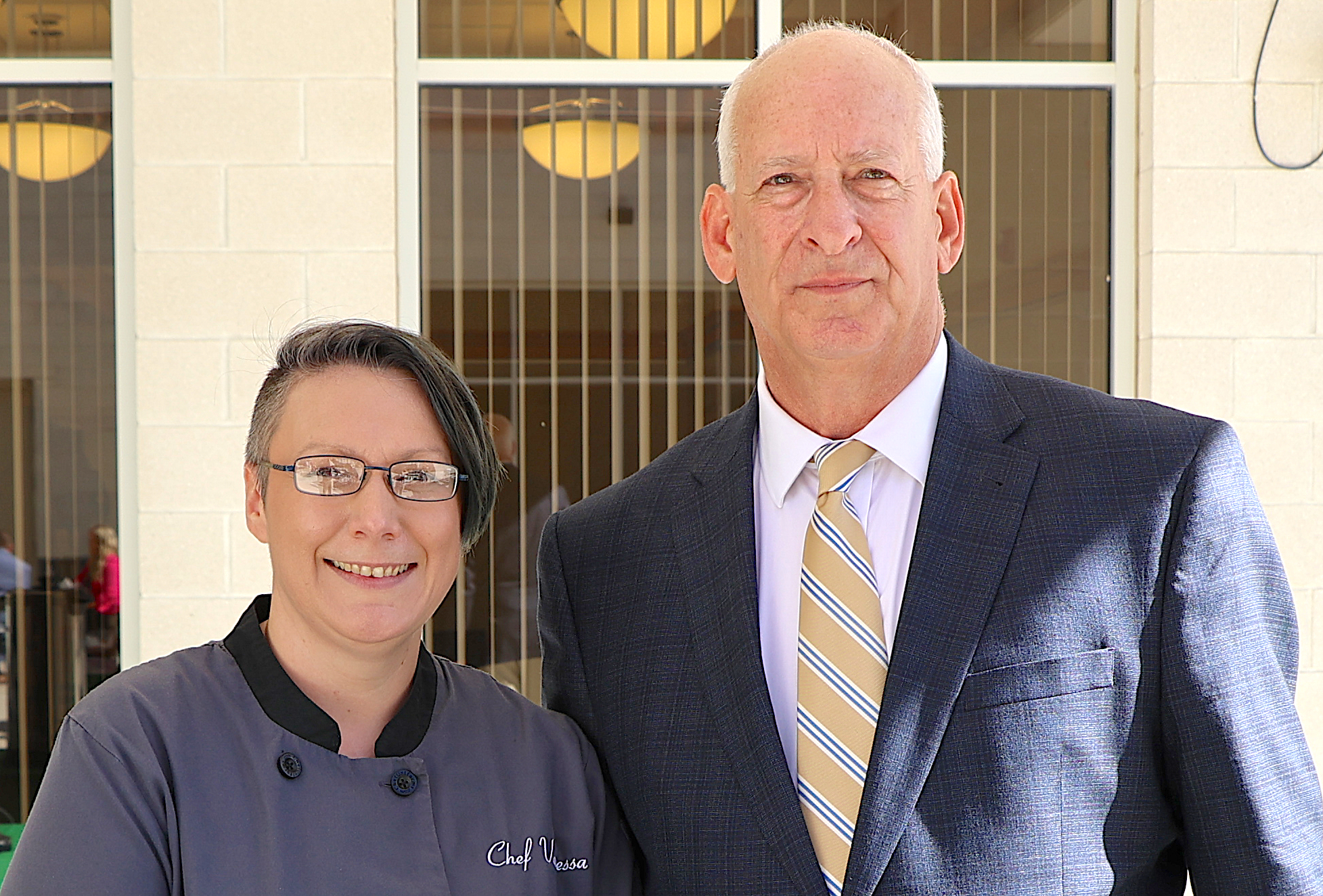JWCC instructors looking for people with passion for culinary arts, hospitality to enroll in revamped program

QUINCY — “Do you measure out your seasonings, or do you season with your heart?”
Chef Vanessa Hall asks this question when she wants to learn if someone truly has a passion for what they do.
“Everybody who has that glint in their eye, who has that passion for it, they say ‘no,’” Hall said.
Hall, along with Hal Axelrod, will help students discover and pursue their passions in John Wood Community College’s revamped Hospitality and Culinary Management Program, which begins this fall.
“This is not the kind of thing where you’re going to go in and fall asleep in class every day and go be successful and get a job,” Hall said. “It’s going to be work, but it takes someone who is passionate about this to really do it.”
The program’s pathways include one-year certificates in culinary arts and hospitality management. Students who graduate from the program will earn an associate in applied science degree in hospitality and culinary management.
The culinary arts certificate prepares students to work in various food service establishments as kitchen supervisors or experienced cooks. Students will learn cooking techniques, sanitation and safety, purchasing and cost control, and the role of the professional server.
Hall will lead that portion of the program. She owns her own catering and culinary business and was the head chef at the Taproom of Grown and Gathered.
“I have experience in catering, in running a restaurant, running a bakery, building menus, things like that,” Hall said. “Yes, you can read these things in books, and you can be taught these things in classrooms, but actually learning from people who know how to guide you in the right direction and being able to understand the whys, it’s something that you can’t get out of a book.”
On the hospitality management side, the certificate includes an introduction course as well as classes in presenting service, food and alcohol certifications, purchasing and marketing, cost control and supervision, front desk operations and human relations.
Axelrod is in charge of that part of the program. He cannot wait to share with his students what he learned during his 45 years in the hospitality industry.
“It’s one thing to be teaching from a book and having all of these exercises to do, but to be able to offer real-life stories, real-life occurrences, real-life applications — this is why you do inventory this way, this is why you follow a recipe this way,” Axelrod said. “Because if not, let me tell you, I blew up all the dressing the night before Thanksgiving, things like that.”
Why is this program necessary? Axelrod’s answer stems from the demand in both the culinary arts and hospitality industries. The tourism industry supports 1,107 jobs in Adams County, and visitors spend $131.9 million in hotels, entertainment and restaurants annually.
“There is such a large number of hospitality and culinary employees in the industry,” Axelrod said. “It’s amazing to be able to give them a professional background as opposed to flying by the seat of their pants or the school of hard knocks. Not to say it’s going to be an easy process, but we have the background to give them, the case studies, and we’ll get them involved in internships, set them up with mentors.”
Whether a student wants to work in the hotel, culinary, hospitality, country club, hospital or sales business, Hall said the possibilities are endless as to where they can go.
“The sky is the limit for what this industry can provide you,” Hall said. “If you have a passion for it, you can go wherever you want to go.”
Axelrod said there are plans to revive the dining experience on campus, and students will be involved with that.
“We’re going to bring back the bistro, the cafeteria section of the college,” Axelrod said. “We’re going to start by doing lunches four days a week, improve on what the students can get for breakfast. We’ll definitely be working on starting a lunch program to keep the students on campus, to give students who are in our classes a chance to work and get more experience.”
Students will gain even more real-world experience by completing an internship program, which Hall said is a crucial part of the program.
“We’re not just trying to spit out students. ‘Oh, you graduated, good for you.’ We want them to have the experience because we want every single one of our students to go out and have successful, long careers in this business,” Hall said. “If they’re not ready and they get out there and they’re faced with it, they’re not going to be successful, and that is not what we want.”
Hall emphasized that once a student completes the program, it doesn’t mean they’re going to open a restaurant right away.
“If they can get all that funding or they have the backing or have previous experience, then 100 percent that could happen for them, but that is not necessarily the norm, and we don’t want it to be the norm,” Hall said. “It is about experience, and experience is invaluable. You don’t want to jump into being the head of a ship when you don’t know all the different positions and know how it runs.”
Students will learn the ins and outs of that ship in JWCC’s Hospitality and Culinary Management Program. Hall encourages students to climb aboard and test the waters.
“Try out the first cooking class that we offer and see if this is what you want to do,” Hall said. “I guarantee you by the end of this class — I would say by the end of the first day — you’re going to know if you have a passion for it, if this is the direction you want to keep going in.”
Miss Clipping Out Stories to Save for Later?
Click the Purchase Story button below to order a print of this story. We will print it for you on matte photo paper to keep forever.

